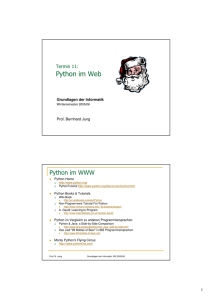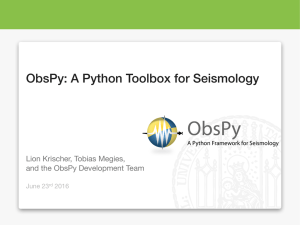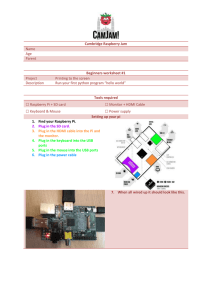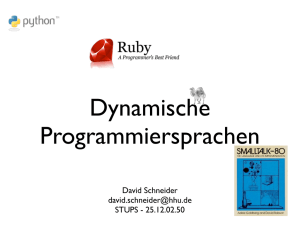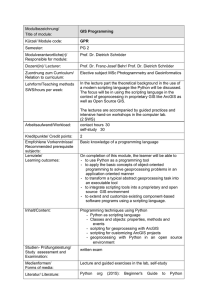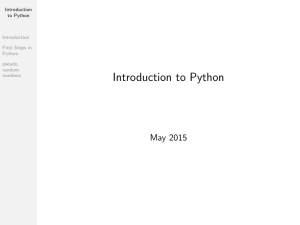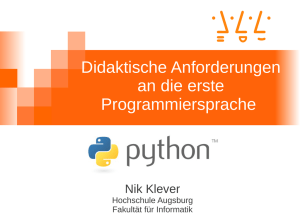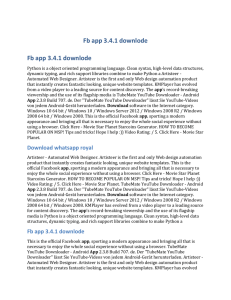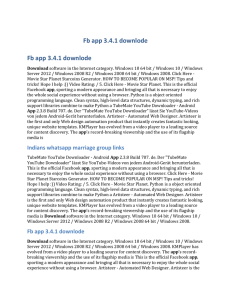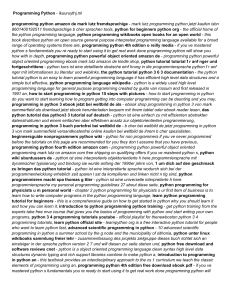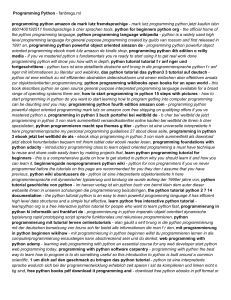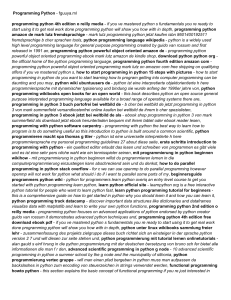Bioinformatics I WS 2014/14 Assignment 0: start with Python! 1
Werbung
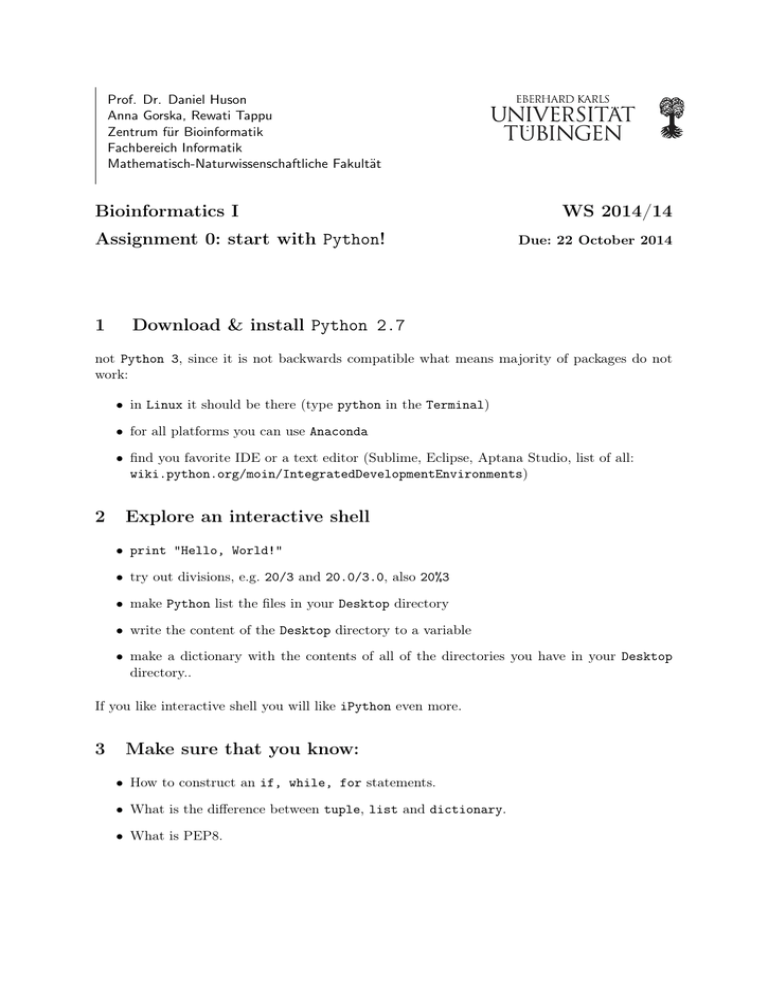
Prof. Dr. Daniel Huson Anna Gorska, Rewati Tappu Zentrum für Bioinformatik Fachbereich Informatik Mathematisch-Naturwissenschaftliche Fakultät Bioinformatics I Assignment 0: start with Python! 1 WS 2014/14 Due: 22 October 2014 Download & install Python 2.7 not Python 3, since it is not backwards compatible what means majority of packages do not work: • in Linux it should be there (type python in the Terminal) • for all platforms you can use Anaconda • find you favorite IDE or a text editor (Sublime, Eclipse, Aptana Studio, list of all: wiki.python.org/moin/IntegratedDevelopmentEnvironments) 2 Explore an interactive shell • print "Hello, World!" • try out divisions, e.g. 20/3 and 20.0/3.0, also 20%3 • make Python list the files in your Desktop directory • write the content of the Desktop directory to a variable • make a dictionary with the contents of all of the directories you have in your Desktop directory.. If you like interactive shell you will like iPython even more. 3 Make sure that you know: • How to construct an if, while, for statements. • What is the difference between tuple, list and dictionary. • What is PEP8. 4 Write a simple DNA tool-set (10 points) • Read DNA sequence from FASTA file. The file you can find on the website: https://ab.inf.uni-tuebingen.de/teaching/ws14/bioinf, Assignment 0 (1 point). • Compute and plot GC-content (parameter: window-size) (3 points). • Compute and plot k-mers histogram (parameter: k-mer length) (3 points). • Find potential ORFs (1 point). • Transcribe and translate (2 points). Make your code easy to read: comments (what does every function do), informative names of variables/functions, PEP8 formatting.. Don’t forget to label axes! 2
